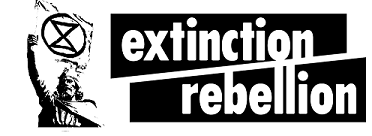STOP AVINGTON OIL

Prioritising short-term commercial gains over the threat of global heating demonstrates a total disregard for local communities and the world at large..
There's lots of action being taken to STOP AVINGTON OIL but we need your help, choose one or more of the actions below to get involved:
Join XRW's STOP AVINGTON OIL campaign
XRW are planning a long term campaign and we need as much support as possible to bring about change.
Click here to sign up
Join WinACC's South Downs for Nature campaign
Help Save the South Downs from the harm of oil extraction.
The South Downs are for Nature - not Oil.
Click here to sign up
Sign the Liberal Democrat's petition
"Save The South Downs From Oil Drilling"
Click here to sign the petition
Write to your local MP and explain your concerns
Click here to send a message
FAQs
Q. Why new oil won’t help UK energy security?
A. Expanding UK oil and gas exploration and production will NOT provide the UK with a secure supply of affordable energy. Continued North Sea expansion is acting as a brake on the UK’s future ambitions for a cheaper, cleaner and more secure energy system. Currently 80% of North Sea oil is exported because there is little demand from the country’s refineries for UK crude oil. But even gas – where there is domestic demand – is sold overseas. source
Q. Why won't new oil bring your fuel bill down?
A. The UK has no control over where and to whom the oil and gas is sold, or over its price. Because oil and gas are traded globally, the price is set by international demand, regardless of whether they are being bought and sold in the same country or shipped overseas. source
Q. Why does new oil tear up UK climate promises?
A. Every drop of greenhouse gas we emit contributes to further global warming and extreme weather, Climate change is already battering the planet with unprecedented wildfires and heatwaves across the globe. Granting hundreds of new oil and gas licences is simply pouring more fuel on the flames, while doing nothing for energy security as these fossil fuels will be sold on international markets and not reserved for UK use. source
Q. Why does new oil mean more local pollution?
A. There is a growing body of evidence about the dangers of living near oil and gas wells. In a 14-year analysis of air quality across California, Stanford researchers observed higher levels of air pollutants within 2.5 miles of oil and gas wells, likely worsening negative health outcomes for nearby residents. source
Oil extraction is a dirty business, the oil comes to the surface mixed with water and gas. After separation the water is still a toxic waste that can’t be reused and must be safely disposed of. At Avington for every litre of oil extracted there’s 9 litres of this waste water. The waste water is toxic because it is still contaminated with oil and whatever else was in the oil reservoir including natural radioactive gas. This water is toxic waste.
The waste water from Avington is taken by tanker to a partly depleted oil well on the Stockbridge Oilfield near Crawley village just to the north of winchester and injected under pressure into the partly empty oil reservoir there. Oil and Gas reservoirs are geologically stable and separated from other rocks and the surface by an impermeable cap. This makes oil and gas reservoirs safe places to store toxic waste providing it is injected carefully to avoid the risk of contaminating water courses and aquifers.However in 2018 this Crawley site was cited by the Health and Safety Executive who served 2 improvement notices for an unintended water escape, so the history of Avington waste water disposal is not one of constant care for the environment.
The chalk aquifer that provides most of the drinking water in the winchester district lies directly under Avington Oilfield. In addition to the waste water problem above, Avington Oilfield runs the risk of contaminating the chalk aquifer with fluids used to lubricate the drilling and the oil that is being extracted. If best environmental protection practices are followed this contamination risk is low, but IGas(Now called Star Energy) operate both the Avington oilfield and the Crawley disposal well so this chequered environmental history can be considered applicable to both operations.
Gas from from an oilwell can be captured and used commercially but if volumes and quality make it uncommercial it must also be disposed of. Typically operators choose to burn the waste gas in a classic oil well flare. This releases CO2 into the atmosphere contributing further to the climate heating problem. Rather than flaring waste gas Star Energy have permission instead to just vent it into the atmosphere. This releases methane into the atmosphere. Methane is a much more potent greenhouse gas than CO2 so venting is the worst option of all for the climate and the method that Avington has chosen to adopt.
More Information
Read more about Avington Oil Well here.
